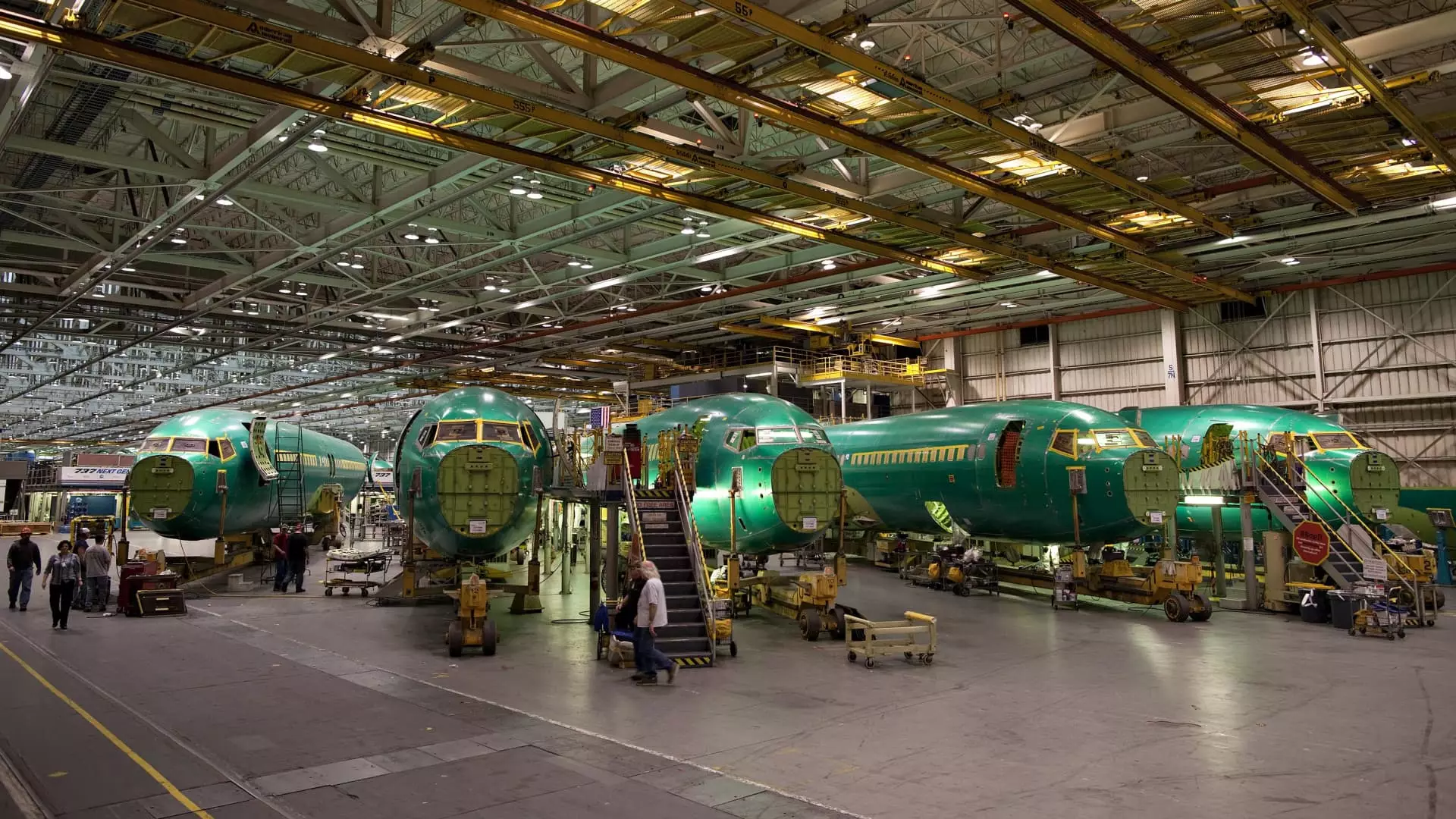Boeing’s announcement to buy back Spirit AeroSystems in an all-stock deal raises questions about the company’s strategic decision-making process. The aerospace giant cited safety and quality control as the main reasons for the acquisition, implying that there were issues in these areas that needed to be addressed. However, the timing of the acquisition, coming after a fuselage panel blowout on a Boeing 737 Max 9, raises concerns about whether this move is more of a reactionary measure rather than a proactive one.
Spirit AeroSystems, the fuselage maker in question, had been struggling before the acquisition. The company’s shares closed at $32.87 a share, with a market capitalization of about $3.8 billion. The acquisition deal values Spirit at $4.7 billion in equity and $8.3 billion including debt. This raises questions about whether Spirit was undervalued prior to the acquisition and whether Boeing’s offer truly reflects the company’s worth.
Boeing’s CEO, Dave Calhoun, emphasized the importance of strengthening quality through the acquisition of Spirit AeroSystems. Calhoun stated that bringing Spirit in-house would align production systems and workforces, demonstrating Boeing’s commitment to improving safety. However, the recent production problems on Boeing planes, including misdrilled holes and misconnected fuselage panels, raise doubts about whether Boeing’s internal operations were up to industry standards even before the acquisition.
The acquisition deal is subject to approval by regulators, Spirit shareholders, and the sale of Spirit’s operations dedicated to Airbus planes. This raises concerns about potential regulatory hurdles that could delay or complicate the acquisition process. Additionally, Boeing’s financial challenges, including a projected cash burn of $8 billion in the first half of 2024, raise questions about the company’s ability to successfully integrate Spirit AeroSystems into its operations without further financial strain.
The decision to acquire Spirit AeroSystems raises questions about the future direction of both companies. With Boeing’s CEO set to step down at the end of the year and Spirit’s CEO, Pat Shanahan, considered a possible successor, the leadership dynamics within the merged entity remain uncertain. Additionally, Airbus’s agreement with Spirit to acquire its manufacturing lines dedicated to Airbus planes indicates a shifting landscape in the aerospace industry that could further complicate the integration process.
Boeing’s acquisition of Spirit AeroSystems raises critical questions about the motives behind the deal, the impact on both companies, the commitment to quality and safety, regulatory and financial challenges, and the future outlook of the merged entity. It remains to be seen whether this acquisition will truly address the underlying issues facing Boeing and Spirit AeroSystems or if it will exacerbate existing challenges in the aerospace industry.

